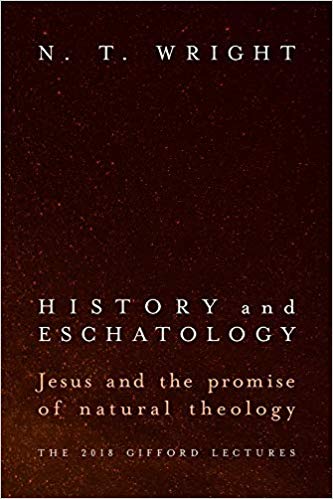BEN: It appears that one of your main concerns in this book is to insist that since history and historical figures like Jesus are part of the realm of space and time, that what they have to say or contribute to the discussion of natural theology should not be eliminated a priori, just because that material comes from a source of revelation, the Scriptures, and so it would be a category mistake to include it. You attribute this exclusion to, among other things the division in European thinking between the ‘eternal truths of reason’ and the contingent truths of history, with the latter being excluded (see Lessing’s ugly ditch) as not relevant, as a category mistake. Or it is excluded because the natural realm is one thing, run by natural causes, and the supernatural is something else (and is assumed by some to intervene or invade the natural realm from time to time. Why is this sort of compartmentalization of reality wrong and what exactly is wrong with it?
TOM: This is a complex question because there were several things going on in influential C18 thought. Lessing’s ugly ditch did indeed separate the eternal truths of what he called ‘reason’ (which means, I think, that which we can figure out by pure thought working on very basic intuitions about the world) and the contingent truths of history (i.e. the messy, unpredictable and apparently random happenings in the world). This appears to be a diminution of history – i.e. we can try to do it but we know it won’t get us anywhere with the biggest questions of all. Equally, however, the same split functioned the other way, as when reductionist ‘historians’ –Hume in Scotland, Reimarus, published by Lessing himself, in Germany! – who said in effect ‘we will do the history’ – in Reimarus’s case, the history of Jesus – and we’ll show that your Christianity is based on lies, deceit, misunderstandings and mistakes. Behind this, yes, there was of course a Platonic split in which the world of space, time and matter, even if in its own way beautiful and well made in some respects, was still essentially secondary, and one should turn from its fleeting shadows to pursue the ‘forms’, the reality itself. And so it goes . . . all the way, through D. F. Strauss, to Bultmann and his followers – though, as I stress in the book, they were at least trying to recover genuine early Christian faith, whereas they were ‘retrieved’ in the English-speaking world in terms of a translation into positivism (the search for ‘facts’ and the ‘discovery’ that there weren’t too many of them to be had). These massive confusions have bedeviled the discipline of NT studies ever since, and have made it seem to theologians as though ‘nothing good will come of history’ – which merely reinscribes Lessing’s ditch. And so it goes . . .












